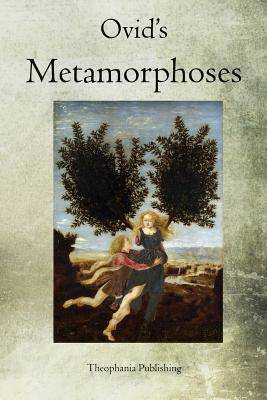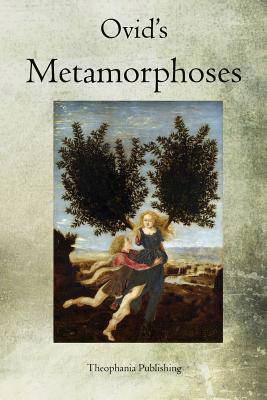
- Retrait gratuit dans votre magasin Club
- 7.000.000 titres dans notre catalogue
- Payer en toute sécurité
- Toujours un magasin près de chez vous
- Retrait gratuit dans votre magasin Club
- 7.000.000 titres dans notre catalogue
- Payer en toute sécurité
- Toujours un magasin près de chez vous
Description
Thank you for checking out this book by Theophania Publishing. We appreciate your business and look forward to serving you soon. We have thousands of titles available, and we invite you to search for us by name, contact us via our website, or download our most recent catalogues. Ovid works his way through his subject matter, often in an apparently arbitrary fashion, by jumping from one transformation tale to another, sometimes retelling what had come to be seen as central events in the world of Greek mythology and sometimes straying in odd directions. The poem is often called a mock epic. It is written in dactylic hexameter, the form of the great heroic and nationalistic epic poems, both those of the ancient tradition (the Iliad and the Odyssey) and of Ovid's own day (the Aeneid of Virgil). It begins with the ritual "invocation of the muse", and makes use of traditional epithets and circumlocutions. But instead of following and extolling the deeds of a human hero, it leaps from story to story with little connection. The recurring theme, as with nearly all of Ovid's work, is love, be it personal love or love personified in the figure of Amor (Cupid). Indeed, the other Roman gods are repeatedly perplexed, humiliated, and made ridiculous by Amor, an otherwise relatively minor god of the pantheon, who is the closest thing this putative mock epic has to a hero. Apollo comes in for particular ridicule as Ovid shows how irrational love can confound the god out of reason. The work as a whole inverts the accepted order, elevating humans and human passions while making the gods and their desires and conquests objects of low humor. The Metamorphoses can be said to be unique in that it is the only Latin mock epic to have an epilogue. This epilogue is Ovid's way of telling his readers that everything is in flux, but that the exception to this is the Metamorphoses, "Now stands my task accomplished, such a work as not the wrath of Jove, nor fire nor sword nor the devouring ages can destroy". The idea that this implies is that the authors gain "immortality" through the survival of their works.
Spécifications
Parties prenantes
- Auteur(s) :
- Editeur:
Contenu
- Nombre de pages :
- 596
- Langue:
- Anglais
Caractéristiques
- EAN:
- 9781468023466
- Date de parution :
- 03-12-11
- Format:
- Livre broché
- Format numérique:
- Trade paperback (VS)
- Dimensions :
- 152 mm x 229 mm
- Poids :
- 784 g







